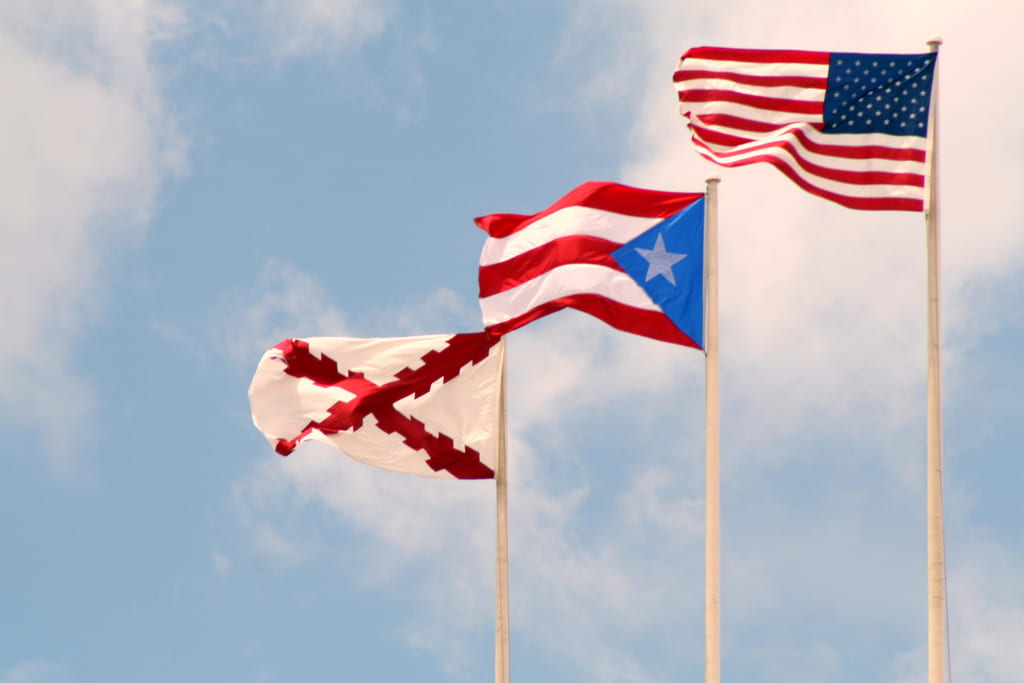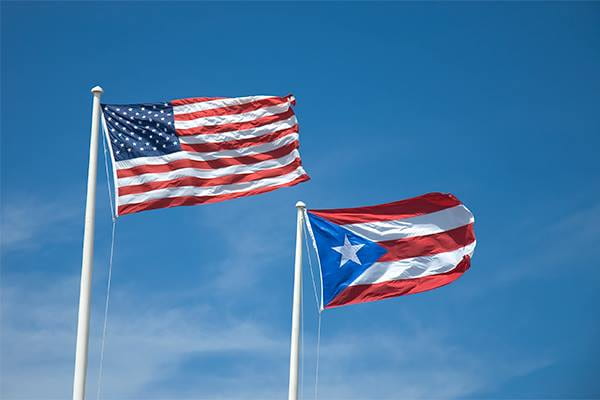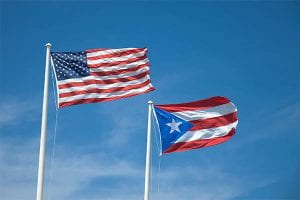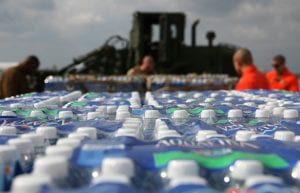In the aftermath of a horrifying hurricane season, Puerto Rico remains in a state of devastation. The contrast between the situation in Puerto Rico and that of post-Irma Florida or post-Harvey Texas is shocking. If those affected in Puerto Rico are American citizens, why have they been treated as second-class outsiders? Many may treat them as such because public knowledge on the citizenship of Puerto Ricans is severely lacking. A study conducted by USA Today and Suffolk University reported that less than half of respondents believed that Puerto Ricans are American citizens by birth. Though people born in Puerto Rico are just as American as those in the states, U.S. has continually deprived Puerto Rico and its citizens of economic and political livelihood. The depth of the current devastation is just one symptom of a long history of abusing Puerto Rican human rights and economic wellbeing. In this blog, we will investigate how these abuses came to be, why they still occur, and how we can change them.

“Is Puerto Rico Part Of Us?”
The title of this section is the first Google auto-completed search that pops up after typing, “is Puerto Rico?” When one considers the level of pride and patriotism that typically comes with being an American citizen, it seems shocking that so many are unaware of what comprises American citizenship. The answer to the question is yes, but it’s a bit more complicated than that. Puerto Rico is not a state, it is a Commonwealth of the United States. Commonwealth status means that the island has local autonomy, though the ultimate source of governance is U.S. Congress. Puerto Rico has its own set of locally elected officials, including a bicameral legislature and a governor (the highest office available in Puerto Rico). The island also has its own constitution. Puerto Rico was not always American territory; the Spanish colonized the island for nearly four hundred years. The United States acquired Puerto Rico from Spain in 1898 after the Spanish-American War. The territory was acquired with the intention of using Puerto Rico as a market for excess goods and as a naval base; to this end, military rule was instituted once the U.S. gained control but shortly abandoned in 1900. In 1917, Puerto Rican rights began to expand as federal law gave U.S. citizenship to anyone born in Puerto Rico. Per the Jones Act of 1917, Puerto Ricans serve in the military, are free to travel the United States, and use U.S. postal service. However, they are not allowed to vote in U.S. elections. The U.S. Congress has the power to veto or amend legislation passed by the local government, even though Puerto Ricans have no input in congressional elections. This disenfranchisement is both political and economic; nearly half of all residents of Puerto Rico live in poverty. The unemployment rate is nearly double the United States’. In addition to the level of economic crisis for individuals, Puerto Rico has accumulated seventy billion dollars of debt. To pay for this, the local government has chosen to close schools, cut health care and transportation budgets, and increase sales taxes. These policy decisions make it even more difficult for Puerto Ricans to obtain proper education and healthcare — both of which are human rights. Spanish colonization is partially responsible for allowing islanders to suffer from mass poverty while continually using the island to extract goods for the benefit of Spain. However, America did not act in its full capacity to bring prosperity to Puerto Rico, and has continued to exploit the island and its people.
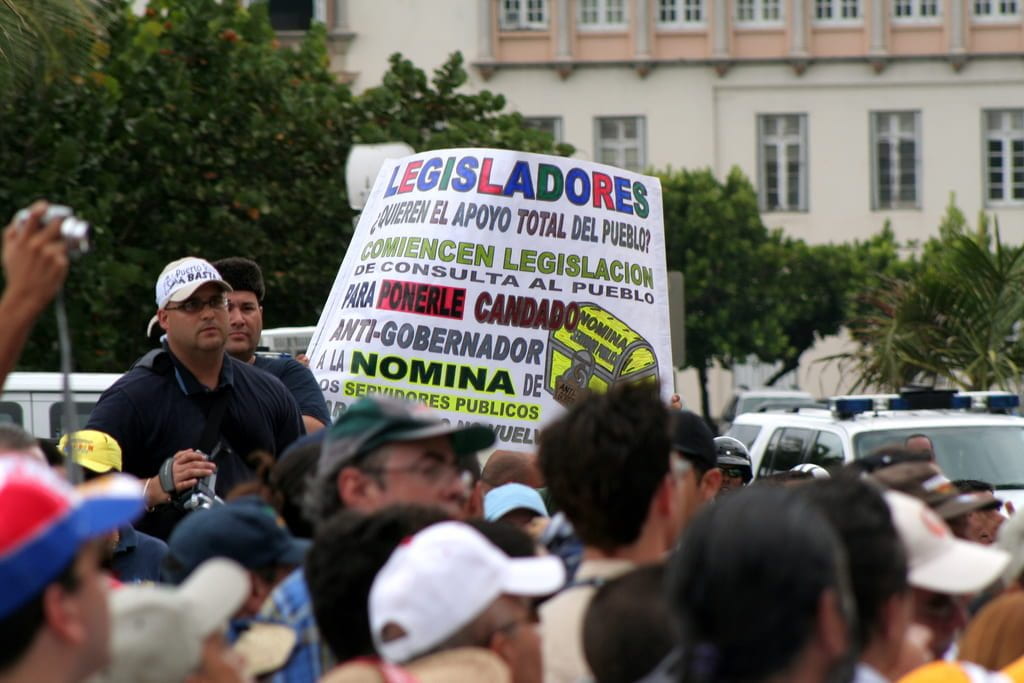
How is America Responsible?
Decades of political and economic marginalization has taken its toll. Over the years, the United States has treated Puerto Rico as “little more than a military base and an economic enclave.” Over 70% of net domestic income generated in Puerto Rico ends up leaving the island due to the economic structure instituted by the U.S. to extract surplus (Committee for Human Rights in Puerto Rico). This makes it impossible for families to generate and accumulate wealth. Puerto Rico as a whole is forced to spend huge amounts of money on incredibly high transportation costs due to maritime law. The law states that all commercial transport must be executed using United States transport—the most expensive transport system in the world. These costs ensure that the cost of Puerto Rican exported goods are substantially higher than they would otherwise be, making their products much less competitive in the international market. Additionally, the United States government is responsible for health crises through years of bombing and/or military testing. Viques, one of the islands within the Puerto Rican territory, reports residents having “increased rates of cancers, asthma, diabetes, heart abnormalities, hypertension, skin conditions, and birth defects” (Collado). To make this issue even worse, the island suffers from widespread inaccessibility to healthcare. Even if residents had the money to afford medical care, there is an incredible shortage of medical professionals; doctors leave the island for a more prosperous future at a rate of one per day. Not only do these circumstances violate Puerto Rican citizens’ human right to an adequate standard of living (UDHR Article 25), but this also makes it much more difficult for affected citizens to participate economically, socially, and politically. All of these compounding factors – economic marginalization, environmental destruction, political disenfranchisement – have created a perfect storm that makes Puerto Rico more vulnerable than ever. Hurricane Maria was able to decimate the island because of the actions of the United States – the economic structure and historical exploitation made Puerto Rico unable to maintain basic infrastructure that would protect them from hurricane damage or allow them to rebuild. This is why the historical legacy of American actions towards Puerto Rico matter, and why our current administration’s dismissal of Puerto Rican suffering is such a critical issue. The aftermath of Hurricane Maria is not a one-time occurrence. Puerto Rico has been repeatedly struck by natural and manmade disasters that have impeded its progress, and many of these are caused or exacerbated by the U.S. The United States has failed miserably in protecting the rights of American citizens of Puerto Rico. We, as fellow Americans, should be held responsible in upholding those rights.
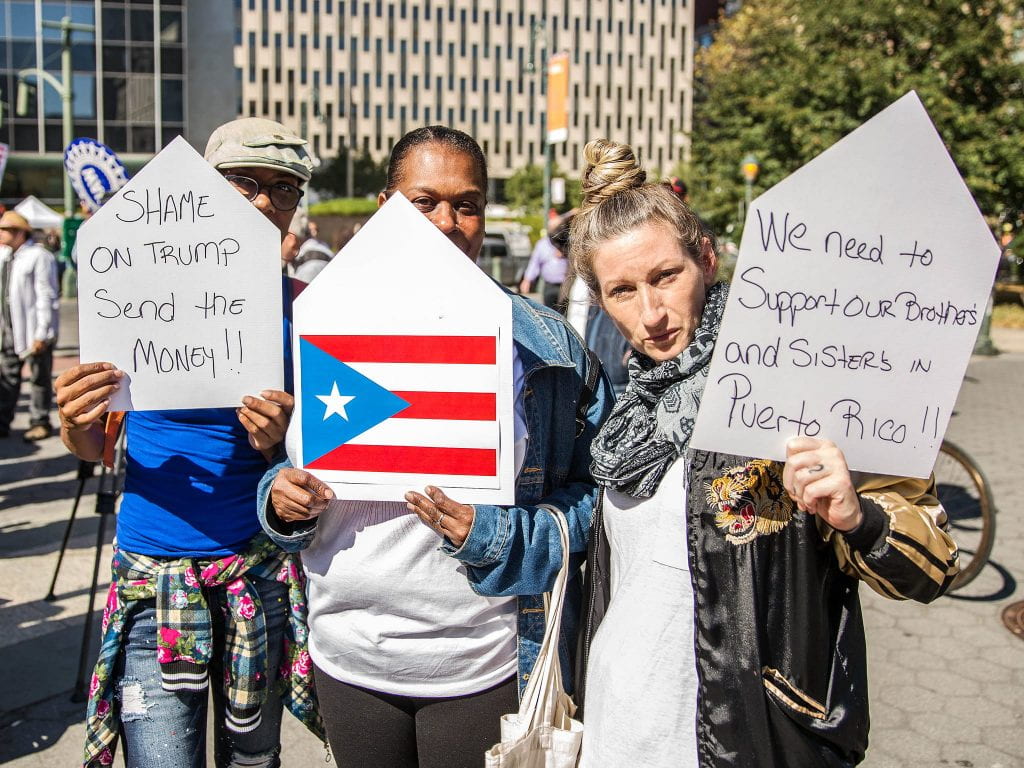
What Can We Do?
As always, we first must investigate our own perceptions of Puerto Rico as well as our peers’. If nearly half of Americans do not know that Puerto Ricans are U.S. citizens by birth, it is entirely possible that many people you know may believe similarly. Though human rights should be protected regardless of citizenship, America often influences the global standard of action. We, as Americans, have a duty to protect our fellow citizens from human rights abuses before we can take a wider lens in our international scope. To address current issues of disaster relief, the Unidos por Puerto Rico fund allows individuals to send money directly to relief efforts. In the long term, it is essential to start raising expectations for Puerto Rico as well as expectations of how America interacts with the island. Our current administration claims that Puerto Rico’s financial crisis and poor infrastructure are issues “largely of their own making.” This is flatly untrue. While from the outside it may seem that Puerto Rico has created its own dire situation, the most damaging factors would have never been in play without the role of the United States. To ensure proper education and healthcare are provided to the 3.4 million American citizens on the island, Puerto Rico no longer needs to be viewed as an outside entity responsible for solving its own problems. There are multiple ways to solve this. One may be addressing the issue of Puerto Rican statehood. The most recent referendum on Puerto Rican statehood found that 97% of voters wanted to obtain statehood. However, this has no significant impact on the decisions of Congress, because legislators have no direct accountability to Puerto Rico. Therefore, American citizens who have power over their legislators through their constituency must make their voices heard in order to protect our voiceless counterparts in Puerto Rico.
